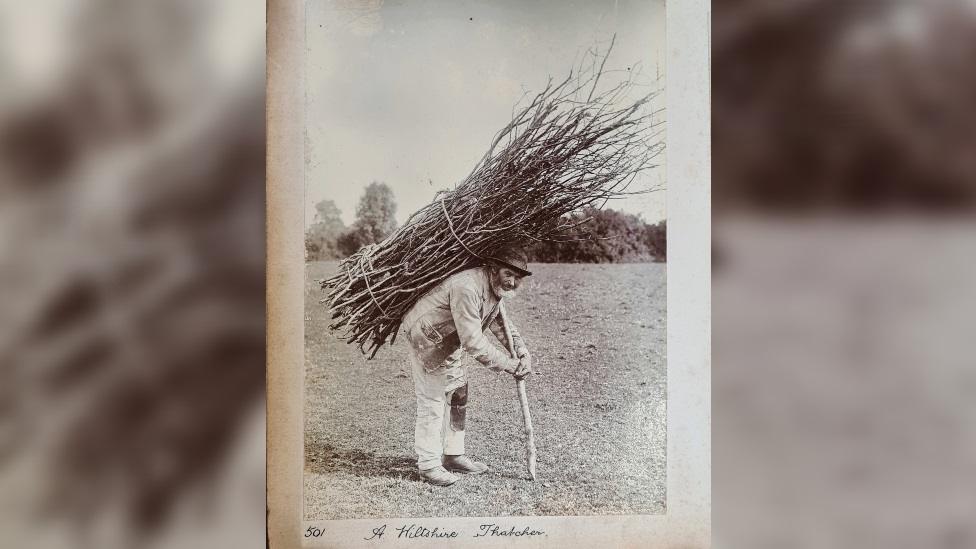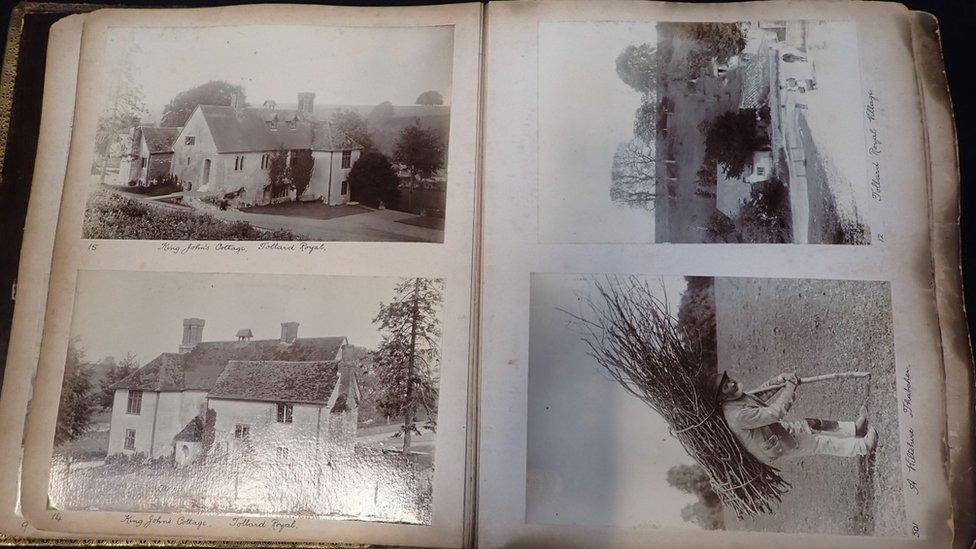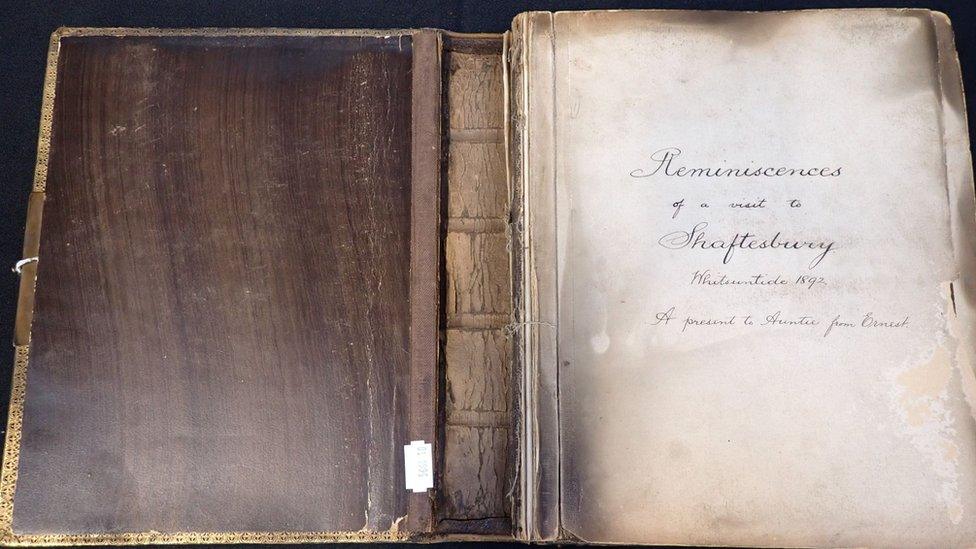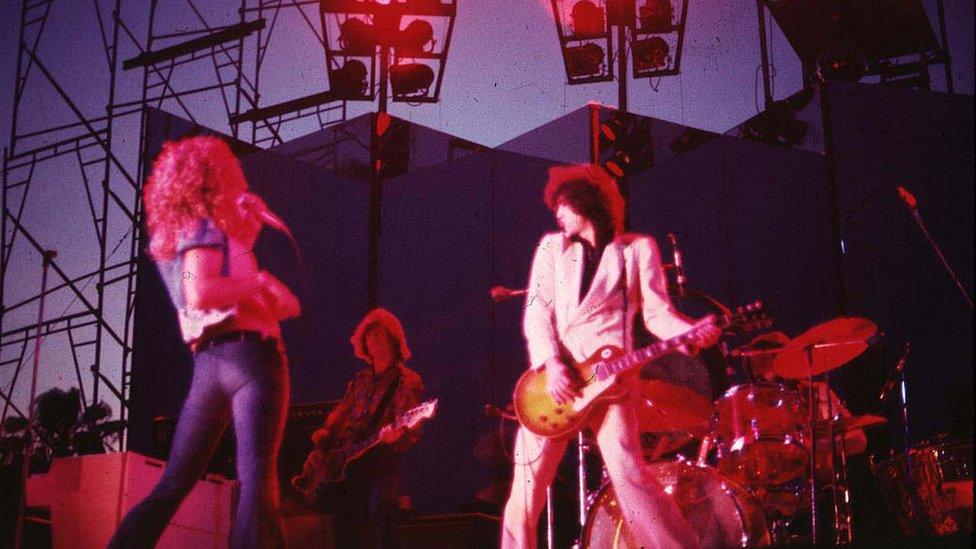Original photo from Led Zeppelin IV album cover discovered
- Published

The black and white picture was found in a Victorian photo album
A man depicted on the album cover of Led Zeppelin IV has been revealed as a 19th Century thatcher.
The figure is most likely Lot Long from Mere in Wiltshire, photographed by Ernest Farmer.
Brian Edwards, from the University of the West of England (UWE), found the original picture when looking through a photograph album for other research.
"I instantly recognised the man with the sticks - he's often called the stick man," he said.
A long-time fan of British rock band Led Zeppelin, he told BBC Radio Wiltshire "it was quite a revelation".
Wiltshire Museum, external has since acquired the photograph and plans to include it in an exhibition next year.
Released in 1971, Led Zeppelin IV has sold more than 37 million copies worldwide and includes the huge hit Stairway to Heaven.

Robert Plant is said to have found a colourised version of the Victorian photo in an antiques shop
The cover art had previously been described as a photograph of a painting, which was reportedly discovered by the band's lead singer, Robert Plant, in an antique shop near guitarist Jimmy Page's house in Berkshire.
But the framed image which can be seen on the cover is actually a colourised photograph, the whereabouts of which is now unknown.
Mr Edwards - who is part of the regional history centre at UWE in Bristol - explained how he worked out the original photographer was Ernest Farmer, who died in 1944.
The only clue in the photo album was the photographer's name Ernest, but Mr Edwards discovered hundreds of Victorian photographers with that name.

Brian Edwards said he instantly recognised the thatcher
He said the quality of the photos suggested they were taken by a professional, and so he looked for chemists, as many of them were involved in photography.
Mr Edwards discovered a chemist working in Salisbury, close to where the picture was taken, who had a son called Ernest Farmer, and then found his handwriting online.
Mr Farmer was the first head of the school of photography at the then newly-renamed Polytechnic Regent Street, now the University of Westminster.
"Part of the signatures matches some of the handwriting in the album," he said.
"The black and white photograph has a thumbprint in the corner - it looks like it's the original," Mr Edwards added.
The photo album mostly contains views and architecture from south Wiltshire and Dorset.
It is titled Reminiscences of a visit to Shaftesbury. Whitsuntide 1892. A present to Auntie from Ernest.

Ernest Farmer gave the photo album to his aunt
Mr Edwards then set about researching thatchers from that time period, and said his research suggested the man pictured was Lot Long, who died in 1893.
Wiltshire Museum's director, David Dawson, said the exhibition in spring next year will be called The Wiltshire Thatcher: a Photographic Journey through Victorian Wessex, and will celebrate Ernest Farmer's work.
"We will show how Farmer captured the spirit of people, villages and landscapes of Wiltshire and Dorset that were so much of a contrast to his life in London.
"It is fascinating to see how this theme of rural and urban contrasts was developed by Led Zeppelin and became the focus for this iconic album cover 70 years later," he said.

Follow BBC West on Facebook, external, X, external and Instagram, external. Send your story ideas to: bristol@bbc.co.uk , external
- Published28 July 2023

- Published3 September 2023
